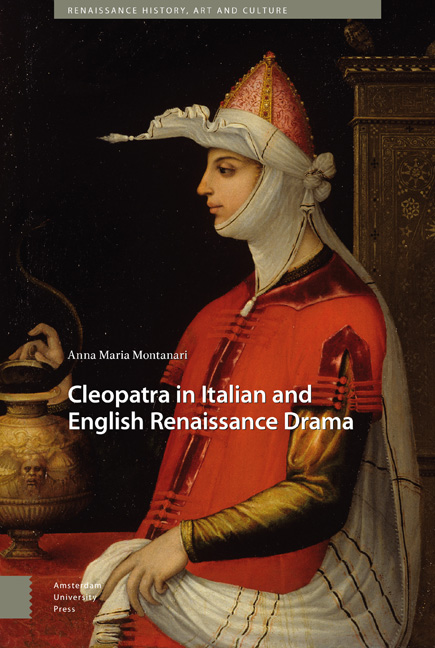Book contents
- Frontmatter
- Dedication
- Epigraph
- Contents
- List of Illustrations
- A Note on the Cover
- List of Abbreviations
- Acknowledgements
- Introduction
- 1 ‘No Humble Woman She’
- 2 ‘The Subject of Talk the World Over’
- 3 The Egyptian Queen's Rebirth
- 4 The Great Theatre of Cleopatra
- 5 ‘The Wanton Luxurie of Court’
- 6 ‘A Lass Unparalleled’
- Conclusion
- Bibliography
- Index
- Frontmatter
- Dedication
- Epigraph
- Contents
- List of Illustrations
- A Note on the Cover
- List of Abbreviations
- Acknowledgements
- Introduction
- 1 ‘No Humble Woman She’
- 2 ‘The Subject of Talk the World Over’
- 3 The Egyptian Queen's Rebirth
- 4 The Great Theatre of Cleopatra
- 5 ‘The Wanton Luxurie of Court’
- 6 ‘A Lass Unparalleled’
- Conclusion
- Bibliography
- Index
Summary
Exeunt omnes
Who was Cleopatra? For centuries historians and writers have tried to answer that question. Shakespeare's play suggests that it is the wrong question to ask. The queen's innermost nature remains mysterious to the end and makes us aware that her case is paradigmatic of a common condition. Too many contradictory traits coexist inside each of us – an ‘infinite variety’ – and what others receive from the outside is always a partial view, a distorted image. Everyone sees what s/he wants to see.
This cognitive conflict was neglected by those who took up Cleopatra’s story immediately after Shakespeare. Dryden (All for Love, 1678) led the question of the persona back to the limits of the theatrical representation. His heroine ‘is imprisoned and finally destroyed by the opposed but equally unwanted roles thrust on her by her admirers and enemies, for her true character is persistently obscured as those who surround her transmute a good, loyal, but mundane woman into a figure of either barbaric evil or divine radiance.’ He also led the play back within the very boundaries of genre which Shakespeare had disrupted.
Other tragedians, both in Italy, England and the rest of Europe, followed the path traced by neoclassical tragedy, or simply adhered to the theatrical tradition of their countries (just think of Spain). Some of them revived the political theme in the light of contemporary issues, others preferred to emphasise considerations of love, desire and passion. Invariably Cleopatra’s identity was recomposed.
For the rest of the seventeenth century, her fame was greater than ever, as the following list of plays demonstrates: Guilliam van Nieuwelandt, Aegyptica: ofte Aegyptische tragoedie van M. Anthonius en Cleopatra: Op den regel Wanhoop, nijdt, en dwaes beminnen, Reden, deught en eer verwinner (1624); Thomas May, The Tragedie of Cleopatra Queen of Aegypt (1626); Giovanni Capponi, Cleopatra (1628); Francesco Pona, Cleopatra (1635); Benserade, La Cleopatre (1636); Jean de Mairet, Le Marc-Antoine (1637); Francisco de Rojas Zorrilla, Los àspides de Cleopatra (1640); Daniel Casper von Lohenstein, Cleopatra (1661); Giovanni Delfıno (or Dolfın), Cleopatra (1660); Charles Sedley, Antony and Cleopatra (1677); Jean de La Chapelle, Cléopâtre (1682).
- Type
- Chapter
- Information
- Cleopatra in Italian and English Renaissance Drama , pp. 265 - 266Publisher: Amsterdam University PressPrint publication year: 2019



